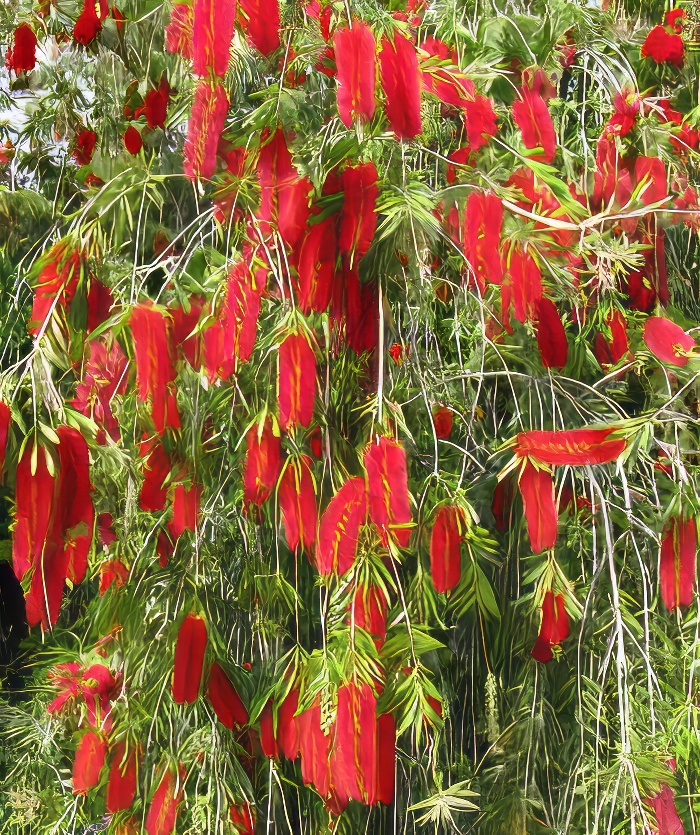Callistemon viminalis
Weeping Bottlebrush

Description
Weeping Bottlebrush (Callistemon viminalis) is a dense canopied tree with bright red, bottlebrush flowers that emerge in the spring and summer. This tree is native to Australia and does extremely well in California-friendly gardens. It can reach up to 20' tall and wide but can be kept smaller with the help of a licensed arborist. This tree is typically a single trunk, and the canopy can be thinned out to allow sunlight into the interior, which will encourage more blooming. Maintenance on the tree is low, but the leaf and flower litter may require more upkeep. This tree is best planted in a location where the leaf and flower droppings can stay in place and become part of the mulch. If there are under-plantings or this tree is over a seating area, it is not uncommon for everything underneath to have a red glow from all the fallen flower petals. This tree should be planted at least five feet away from any hardscape areas and 10 feet from structures such as houses and buildings. Shrubs and perennials should be planted about three feet away from this tree. It should be irrigated for about 45 minutes once a week when using most in-line drip irrigation systems.
Plant Type
Tree
Height Range
12-25'
Flower Color
Red
Flower Season
Spring, Summer
Leaf Color
Green
Bark Color
Grey
Fruit Color
Brown
Fruit Season
Fall
Leaf Season
Evergreen
Sun
Full, Half
Water
Low
Growth Rate
Fast
Soil Type
Sandy, Clay, Loam
Soil Condition
Average, Poor, Well-drained
Soil pH
Acid, Neutral
Adverse Factors
Allergenic, Attracts Bees, Messy
Design Styles
Mediterranean, Ranch, Seascape, Spanish
Accenting Features
Fragrance, Showy Flowers, Unusual Shape
Seasonal Interest
Winter, Spring, Summer, Fall
Location Uses
Foundation, Patio, Parking Lot, Street Tree
Special Uses
Hedge, Screen, Wind Break, Medicinal
Attracts Wildlife
Birds, Wildlife
Water Saving Tip:
Water between sunset and sunrise when temperatures and wind are the lowest.